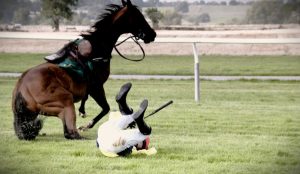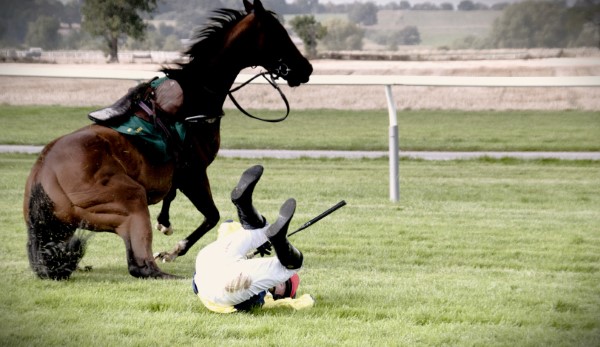
BS”D
Volume 37, No. 17
20 Shevat 5783
February 11, 2023
Sponsored by
Mrs. Faith Ginsburg
on the yahrzeit of
her father, Herzl Rosenson
(Naftali Hertz ben Avraham a”h – 22 Shevat)
Irving and Arline Katz
on the yahrzeits of
her mother
Frahdel bat Yaakov Shulim a”h
and his father
Chaim Eliezer ben Avigdor Moshe Hakohen a”h
Our Parashah begins, “Yitro, the Priest of Midian, the father-in-law of Moshe, heard everything that G-d did for Moshe and for Yisrael, His people.” R’ Simcha Zissel Broide z”l (1912-2000; Rosh Yeshiva of the Chevron Yeshiva in Yerushalayim) wonders: Does it bring honor to Moshe Rabbeinu that the Torah pairs “father-in-law of Moshe” with “Priest of Midian”? Moreover, when Moshe Rabbeinu’s genealogy is presented in Parashat Va’era (6:16-25), the Torah includes the fact that Moshe’s nephew, Elazar, married a “daughter of Putiel.” Putiel is identified by our Sages as Yitro, “who fattened (‘Pitaim’) calves for Avodah Zarah / idolatry.” Again, why is that a point of distinction?
R’ Broide explains: As noted, our Parashah begins, “Yitro heard,” meaning that he heard about the Exodus, the Splitting of the Sea, and the attack by Amalek. But, didn’t all of the nations hear about these things? Why was Yitro moved by them more than everyone else was? The answer, R’ Broide writes, is that Yitro was a truth-seeker. He heard about G-d’s miracles, and that information influenced him. Others heard, as well, but they were not affected, because they were not looking for the truth.
Our Sages say that Yitro’s search for truth led him to experiment with every Avodah Zarah in existence. And, he did not do this half-heartedly; for example, he did not satisfy himself with buying animals for sacrifices. Rather, he was so committed to his search for truth that he personally raised calves and fattened them for the altar. Yitro’s service as “Priest of Midian” and his fattening calves for idolatry can be seen as steps on his way to ultimately discovering the truth he sought. Viewed this way, this history most definitely brings honor to Yitro’s son-in-law, Moshe, and to the extended family. (Sam Derech: Ma’amar Gedulat Yitro)
********
“When they have a matter, Ba Elai / one comes to me, and I judge between a man and his fellow, and I make known the decrees of G-d and His teachings.” (18:16)
R’ Menachem Mendel Hager z”l (1768-1826; Kossover Rebbe) interprets Moshe Rabbeinu’s words as follows: “Unfortunately, people come to me (Moshe) for the wrong reason. When they have a matter–i.e., when they have a personal, material matter–then they come to me and I judge for them. However, my real goal at such times is to make known the decrees of G-d and His teachings.”
R’ Hager’s descendant, R’ Moshe Yehoshua Hager z”l (1916-2012; Vizhnitzer Rebbe) adds: Many people come to Torah scholars and Chassidic Rebbes to receive blessings for health or sustenance. For some reason, however, they do not feel any need to seek guidance about spiritual matters, such as the education of their children. They do not see that the Gematria of “Ba Elai” / “one comes to me” equals the Gematria of “Yeled” / “child.” (Quoted in Otzrotaihem Shel Tzaddikim)
********
“Zachor / Remember the Sabbath day to sanctify it.” (20:8)
In the Aseret Ha’dibrot in Devarim (5:12), we read, “Shamor / Safeguard the Sabbath day to sanctify it.” The Gemara (Shevuot 20b) teaches that G-d uttered “Zachor” and “Shamor” simultaneously, something that no human mouth can utter and no human ear can comprehend [absent a miracle].
R’ Yehuda Loewe z”l (the Maharal of Prague; died 1609) asks: What is the purpose of G-d’s uttering “Zachor” and “Shamor” simultaneously? Some say, Maharal writes, that it is so that our Sages would equate the two phrases and derive the principle: “Whoever is obligated to safeguard Shabbat, i.e., whoever is prohibited to do Melachah / work on Shabbat, is obligated to remember Shabbat.” This teaches that women are obligated in Kiddush, which they otherwise would not be because Kiddush is a Mitzvat Aseh She’hazman Gerama / an affirmative commandment which is time-dependent. However, Maharal argues, we would have derived the same law if Hashem had just said, “Zachor ve’shamor / Remember and safeguard the Sabbath day to sanctify it.” Why was it necessary to utter the two phrases simultaneously?
Rather, Maharal writes, the two phrases were uttered simultaneously to teach us that they are equally essential to proper Shabbat observance. Had the Torah said only, “Shamor / Safeguard the Sabbath day,” we would have thought that the Shabbat is sanctified if we merely refrain from working; we do not need to do anything to imbue the day with sanctity. On the other hand, had the Torah said only, “Zachor / Remember the Sabbath day,” we would have thought that the Shabbat is sanctified if we just recite Kiddush, no matter what else we do on the Sabbath. Now, however, we know that only with both aspects–refraining from Melachah and actively sanctifying the day–do we properly observe Shabbat. (Gur Aryeh)
********
“The seventh day is Shabbat to Hashem, your Elokim; you shall not do any work.” (20:10)
R’ Shmuel Abohav z”l (1610-1694; rabbi and Rosh Yeshiva in Venice, Italy) writes: In common speech, “work” connotes exertion–in particular, carrying objects from one place to another. Yet, a person may carry furniture around his house to set places for guests, and he may carry large trays of food from the kitchen to the dining room, and he does not desecrate the Shabbat. How then do we define “work”?
R’ Abohav explains: We read (Devarim 5:12), “Safeguard the Sabbath day to sanctify it, as Hashem, your Elokim, has commanded you.” This teaches us that what is permitted or forbidden on Shabbat is known to us only through the Oral Law–“as Hashem, your Elokim, has commanded you.” This is similar to how our Sages interpret the verse (Devarim 12:21), “You may slaughter from your cattle and your flocks . . . as I have commanded you.” Where does Hashem command us how to perform Shechitah? Only in the Oral Law. (Sefer Ha’zichronot 10:6)
********
“For in six days Hashem made the heavens and the earth . . . , Va’yanach / and He rested on the seventh day.” (20:11)
R’ Avigdor Tzarfati z”l (France; 13th century) writes: In Bereishit (2:3), the same idea is expressed in different words, “Elokim blessed the seventh day and sanctified it because on it Shavat / He abstained from all His work . . .” The word “Shavat” is related to the word “Yeshiva” / “sitting,” and alludes to the Midrash that Hashem sat the “angel of Shabbat” on a throne, and all of the other angels danced before it. Since Shabbat is called a “bride,” writes R’ Avigdor, this verse and Midrash provide a source for the custom that a bride sits on a “throne” facing the groom, and people dance before them singing praises of the bride. (Peirushim U’pesakim Le’rabbeinu Avigdor Tzarfati)
********
“In every place where I will mention My Name, I shall come to you and bless you.” (20:21)
R’ Chaim of Volozhin z”l (Belarus; 1749-1821) asks: Should not the verse have said, “In every place where you will mention My Name . . .”?
He explains: We read in Iyov (41:3), “Who came before me, that I should pay him?” In reality, it is Hashem who gives us the ability to study Torah and perform Mitzvot. Therefore, He has no obligation to reward us! Nevertheless, in His kindness, He does pay us for our Mitzvot. Similarly, when we pray to Hashem at the site of the Mizbe’ach (the subject of our verse), it is possible only because He enables us to do so; it is as if He is the one mentioning His Name. Nevertheless, He will come to us and bless us. (Ruach Chaim 3:6)
********
Shabbat
“Yom Shabbat im tishmoru / If you observe the Sabbath day you will be My Segulah / most beloved treasure.” (From the Zemer – Mah Yedidut)
We read in our Parashah (19:5), “And now, if you listen well to Me and observe My covenant, you shall be to Me the Segulah / most beloved treasure of all peoples, for the entire world is Mine.” There is no mention in this verse that Shabbat observance, in particular, makes us Hashem‘s Segulah. Where, then, did the author of this Zemer derive a connection between the two?
R’ David Falk shlita (Yerushalayim) explains: The Torah commentator Rabbeinu Bachya ben Asher z”l (Spain; 1255-1340) defines a Segulah as something so precious that its owner does not entrust it to any watchman. Instead, he keeps it nearby at all times so that he can guard it himself. Similarly, when we say that Bnei Yisrael are Hashem’s “Segulah,” we are referring to the fact that all other nations have “guardian angels” and are affected by the zodiac, while we do not and are not. Instead, Hashem watches over us directly, as we read (Devarim 4:19-20), “Hashem, your Elokim, has apportioned [the stars and other heavenly bodies] to all the peoples under the entire heaven. But Hashem has taken you . . .”
Shabbat is the sign that we are His Segulah, for Shabbat belongs exclusively to the Jewish People. Thus we read (Shmot 31:17) and say in Kiddush, “Between Me and Bnei Yisrael it is a sign forever.” In this light, as well, we can understand the Midrash which says that the covenant mentioned in the verse from our Parashah (19:5) quoted above is the covenant of Shabbat. (Kinor David p.92)


